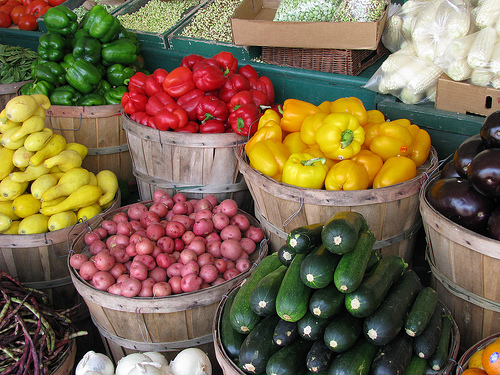When you think about it, shopping at a farmers market is already a pretty green thing to do. Food grown in close proximity to where it is sold saves fossil fuels due to transportation. And, the food at farmers markets is often grown organically, which means fewer chemical fertilizers and more carbon trapped in the soil.
So, how do you make a farmers’ market greener? Just add recycling.
That’s what the Memphis (TN) Farmers’ Market did starting in 2008. The market in Tennessee’s largest city implemented an environmental policy that included making it easier for shoppers to recycle, reuse and compost products while shopping at the weekly event.
Market officials put out bins so attendees could recycle their aluminum cans and plastic containers. Vendors sell coffee in compostable cups, which are collected and added to compost piles. The information table sells reusable shopping bags so customers stop relying on paper and plastic ones.
To help shoppers continue recycling at home, the market occasionally offers recycling bins, Earth Machine composters and educational materials. The program seems to be working — in 2009, the market recycled and composted more than 1,000 pounds of material.
